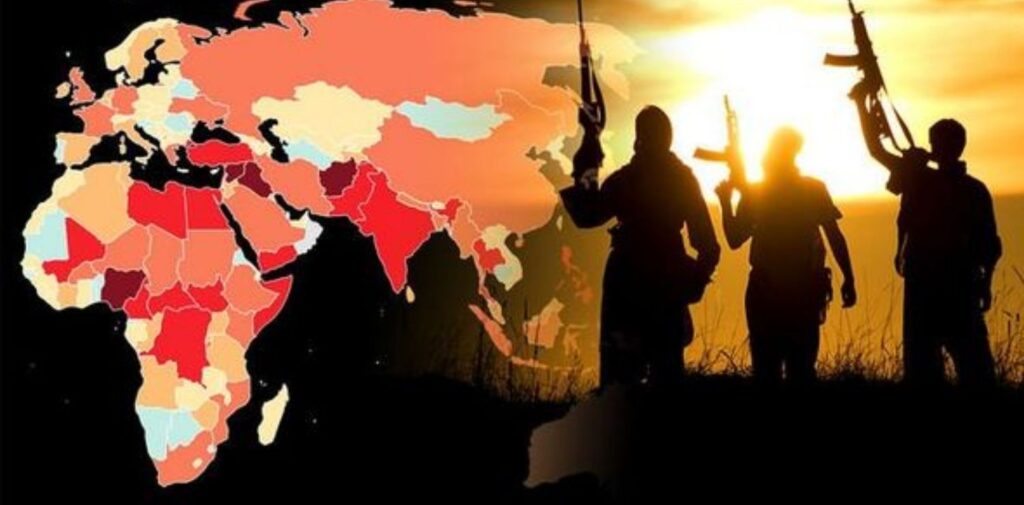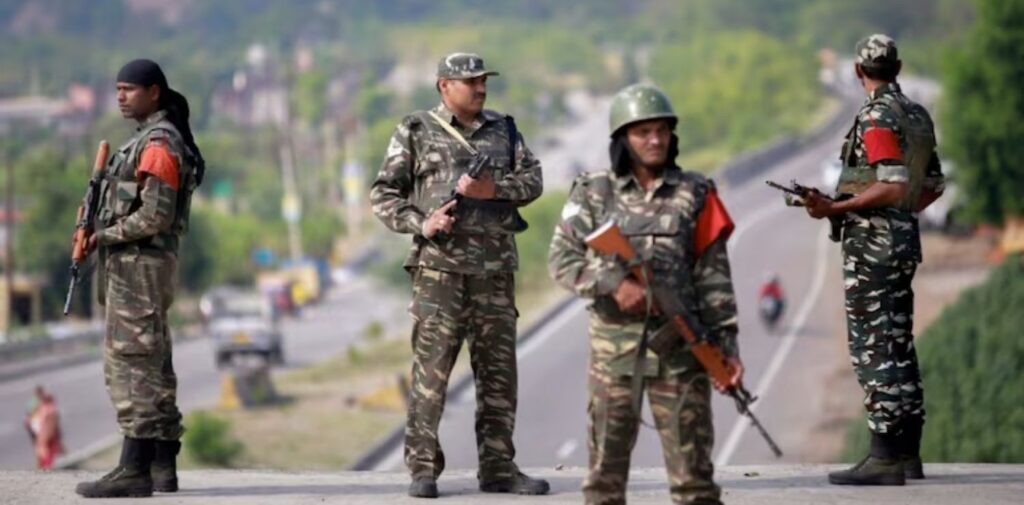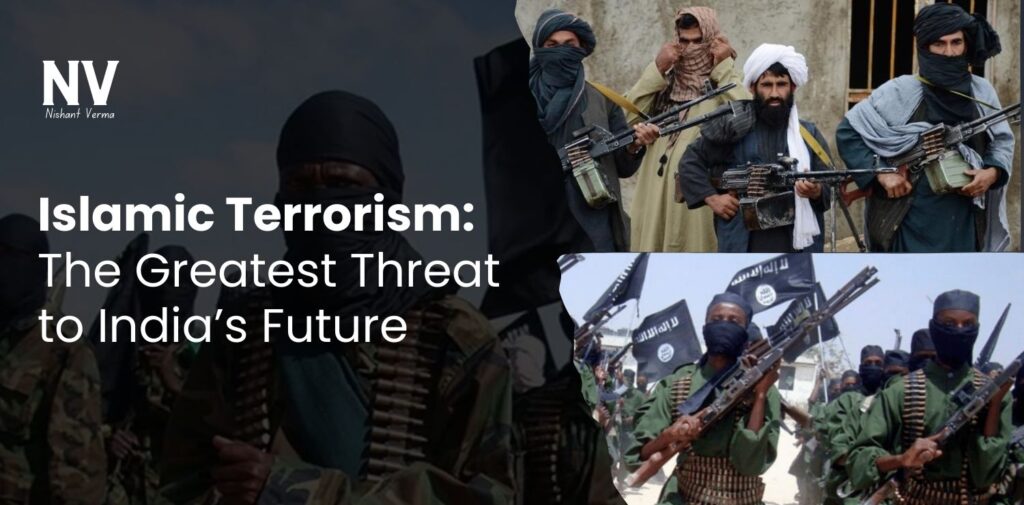Islamic terrorism remains one of the most significant threats to India’s national security, social harmony, and economic stability. Originating largely due to Pakistan’s territorial ambitions in the Kashmir region, this menace has evolved over the decades, becoming a broader issue with financial and ideological support from various transnational organizations. If not addressed with a comprehensive and strategic approach, this threat could become even more dangerous, destabilizing India’s internal security, disrupting social cohesion, and hindering economic growth.
Historical Context: The Roots of the Threat
The origin of Islamic terrorism in India can be traced back to Pakistan’s strategic use of militant groups to achieve its objective of destabilizing India, particularly in Jammu and Kashmir. Since the late 1980s, Pakistan has supported and funded militant groups like Lashkar-e-Taiba (LeT) and Jaish-e-Mohammed (JeM) to carry out terrorist attacks in India, not just in Kashmir but across various Indian cities. The 2001 Indian Parliament attack and the 2008 Mumbai attacks serve as stark reminders of the cross-border terrorism sponsored by Pakistan. The nature of this threat, however, has evolved over the years, shifting from localized militancy to transnational jihadist movements, often drawing support from the broader global jihadist network.
The Global Network of Islamic Terrorism
The globalization of jihadist terrorism has meant that organizations such as Al-Qaeda and ISIS now inspire, recruit, and radicalize individuals across national boundaries. While these groups initially focused on regions like the Middle East and Africa, they have since extended their reach to South Asia, including India. This transnational character of terrorism is concerning because it leverages sophisticated networks for recruitment, financing, and dissemination of extremist ideologies. Even if these groups do not maintain a direct operational presence in India, they influence local terrorist outfits and lone wolves through online propaganda and clandestine funding channels.

Economic Impact of Terrorism
The impact of terrorism is not just limited to loss of lives and property; it has severe economic implications as well. Terrorist activities create an environment of fear and uncertainty, which can deter investments, disrupt tourism, and impose a heavy burden on national security expenditures. For instance, each major terrorist incident prompts an increase in security costs and results in a loss of investor confidence. The cumulative impact of such incidents can slow down economic growth and divert resources away from developmental projects.
A report by the Observer Research Foundation highlights that India’s expenditure on counter-terrorism measures has increased substantially over the years, but it remains insufficient compared to the magnitude of the threat. Moreover, the indirect costs, such as reduced tourism revenues and increased insurance premiums, further strain the economy.
Social and Political Ramifications
Islamic terrorism has also deepened communal divides within India. Terrorist attacks carried out in the name of religion often provoke backlash and contribute to a cycle of distrust and animosity between communities. This, in turn, undermines social harmony and provides fertile ground for further radicalization. The politicization of terrorism-related incidents also exacerbates communal tensions and can lead to polarization, making it challenging to implement effective counter-terrorism policies.
In the political realm, terrorism has been used as a tool to influence public opinion and elections. The manipulation of national security issues for political gains often leads to short-sighted policies that prioritize immediate political advantage over long-term security strategy.

Addressing the Threat: A Need for Comprehensive Strategy
Given the complex nature of Islamic terrorism, India needs a multi-faceted approach to tackle this threat effectively. This strategy must encompass not only military and intelligence measures but also socio-economic policies aimed at addressing the root causes of radicalization.
- Strengthening Counter-Terrorism Capabilities: India’s counter-terrorism agencies must be equipped with the latest technology and intelligence capabilities. This includes improving border security, enhancing cyber surveillance, and establishing specialized units to tackle urban terrorism. Collaboration with international agencies for information sharing is also crucial.
- Curtailing Terror Financing: Many terrorist organizations operate through extensive funding networks that include donations from sympathizers, money laundering, and even drug trafficking. A strong financial surveillance mechanism to trace and cut off these funding sources is essential to weaken these groups.
- De-Radicalization Programs: Preventing the spread of extremist ideologies is as important as dismantling the operational capabilities of terrorist groups. India should invest in community-based programs that promote social integration and counter extremist narratives. Religious leaders, educators, and community influencers must be involved in these initiatives to ensure their effectiveness.
- Legal and Policy Framework: India’s legal framework needs to be robust enough to prosecute those involved in terrorist activities while safeguarding civil liberties. The amendments to anti-terror laws should strike a balance between empowering security forces and protecting citizens’ rights.

The Future if Unchecked: A Growing Threat
If India fails to take decisive action now, Islamic terrorism will continue to evolve, posing an even greater threat to national security. With advances in technology, terrorists could leverage cyber tools to carry out sophisticated attacks on critical infrastructure, financial systems, or communication networks. This could cripple the economy and lead to widespread chaos.
Moreover, the ideological appeal of extremist groups could attract more individuals to join their ranks, making it harder to contain this threat. As seen in regions like the Middle East, unchecked terrorism can lead to prolonged instability and conflict, eroding social trust and national cohesion.
In conclusion, Islamic terrorism is not just a security issue—it is a complex challenge that threatens India’s future in multiple dimensions. A proactive and comprehensive strategy is needed to counter this menace. Failure to act now could result in far-reaching consequences, putting at risk not only the safety of Indian citizens but also the country’s economic and social fabric.




